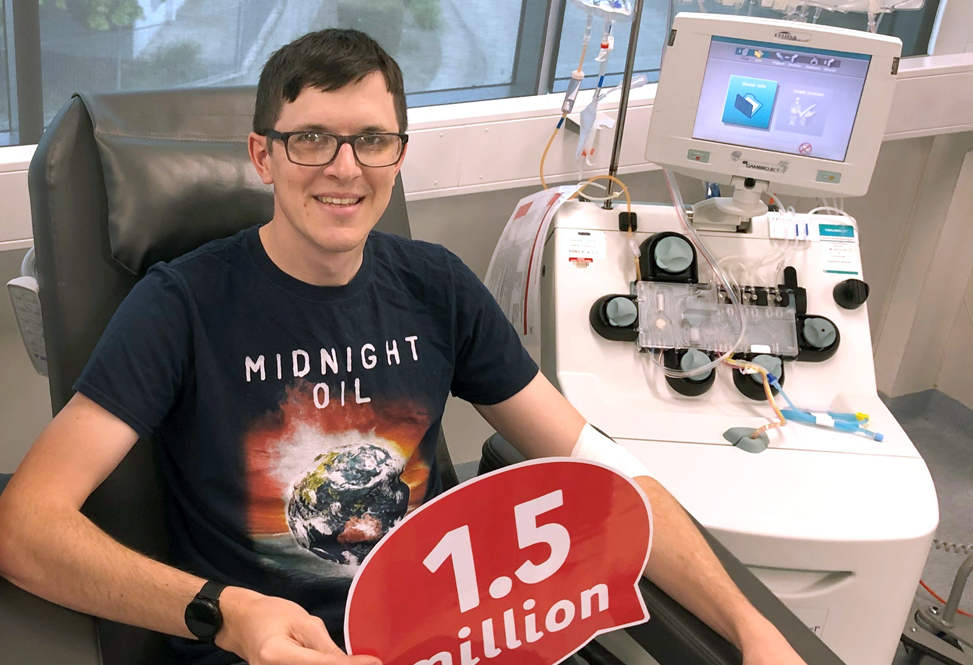When it comes to blood: Every Drop is Precious.
It is the mantra that West Moreton Health clinicians have embedded into their everyday work – from surgical theatres to maternity units and the medical wards – to make sure no blood donation is ever wasted.
Despite the region’s growing population and an increased demand for health services, West Moreton Health continues to minimise the amount of donated blood it needs to continue its life-saving work through a series of clinical initiatives to conserve every drop.
Ipswich Hospital Executive Director Michael Lewczuk said the generosity of donors was never forgotten.
“Blood is a life-saving commodity, and we are very aware that our clinicians could not do their work without the selfless blood donation of people in the community,” Mr Lewczuk said.
“So the more blood we can save, the further each donation can stretch, and potentially save another life.”
New cutting-edge technology, and treatment procedures to optimise patients’ wellbeing, have resulted in significant decreases in blood wastage across all areas, and clinicians undergo frequent education to ensure they are meeting Australian best practice standards when it comes to blood transfusions.
Initiatives include the early detection and treatment of anaemia in patients preparing to have surgery, as well as the introduction of rapid testing for blood clot development in Ipswich Hospital’s Emergency Department when patients are at risk of bleeding.
Mr Lewczuk said the introduction of ROTEM testing technology at Ipswich Hospital has slashed the time it takes to get a blood clotting result from 90 minutes to about five minutes.
“This makes a huge difference to the treatment of road trauma patients, who often need blood transfusions quickly after a serious accident, and consequently the amount of blood that we need to give them to keep them alive,’’ Mr Lewczuk said.
“Trauma-induced coagulopathy is a blood-clotting disorder which can occur after a major trauma injury, and this can lead to a person having serious bleeding, or even death.”
Donated blood is most frequently used in the treatment of cancers and blood diseases, major surgeries, and orthopaedic joint replacements, road accidents including serious trauma, and post-delivery mothers.


West Moreton Health is home to hundreds of certified lifesavers and Rhys Owens (pictured) is one of them.
The 30-year-old normally supports patient care in his role as Hotel Services Supervisor, but every two weeks he makes an appointment to change someone’s life.
Mr Owens is among the volunteer blood donors being celebrated this week for National Blood Donor Week, which runs this week from 14 to 20 June.
He has rolled up his sleeve on 194 occasions, which means his blood has helped save up to 582 lives.
Blood donation is a proud family tradition started by Mr Owens’ mum, the late Hilary Owens, who also worked at Ipswich Hospital as a nurse in the rehabilitation and palliative care wards.
“My mum donated blood for about 40 years. She started when she was 16, the same age as me, and she was the one that got me and my brothers and my dad into donating blood too,’’ Mr Owens said.
“She was a nurse and wanted to do right by her community.
“Mum is no longer with us so now we donate blood to honour her memory.’’
The father-of-two said he hoped his children would one day become third-generation donors.
“Donating blood is a family thing, and something we take pride in doing together so it would be important to me for my children to continue that tradition.’’
Mr Owens is currently representing West Moreton Health in the Health Services Blood Drive, a national competition organised by Australian Red Cross Lifeblood to encourage health workers to donate blood.
For more information about blood and plasma donations, and where to donate near you, visit donateblood.com.au

